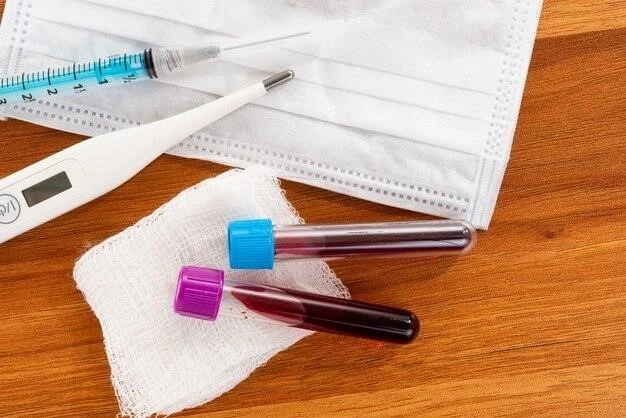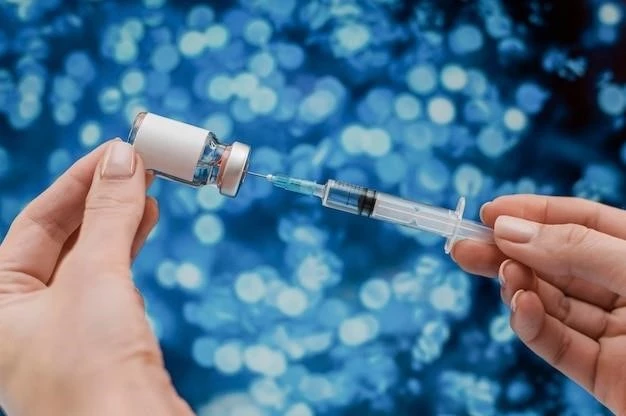Beckers Nevus is believed to be caused by a combination of genetic and hormonal factors․
Treatment options for Beckers Nevus include laser therapy‚ topical medications‚ and surgical excision․
Hormonal changes can lead to darkening and increased hair growth in Beckers Nevus․
Understanding Beckers Nevus
Beckers Nevus is a benign skin condition characterized by a light to dark brown patch with irregular borders and increased hair growth․ It typically appears during puberty and affects males more frequently․ The exact cause of Beckers Nevus is unknown‚ but it is thought to be related to hormonal factors and genetics․ This condition is usually asymptomatic but may cause distress due to cosmetic concerns‚ especially in visible areas․
Individuals with Beckers Nevus should consult a dermatologist for diagnosis and to discuss treatment options․ While it does not pose a serious health risk‚ some people opt for treatments to address the cosmetic appearance of the lesion․ Understanding Beckers Nevus involves recognizing its physical characteristics and potential impact on self-esteem․ Overall‚ a comprehensive approach to managing Beckers Nevus includes accurate diagnosis‚ appropriate treatment‚ and support for the psychological aspects of living with this skin condition․
Causes of Beckers Nevus
The exact causes of Beckers Nevus remain unclear‚ but it is believed to result from a combination of genetic mutations and hormonal influences․ Hormones like testosterone may play a role in the development of this skin condition‚ explaining why it predominantly affects males․ Genetic factors are also thought to contribute‚ as Beckers Nevus can run in families․
It is essential to note that Beckers Nevus is generally considered a sporadic condition‚ meaning it does not typically stem from inherited genetic mutations․ Instead‚ the interplay of hormonal changes and genetic predispositions during puberty is thought to trigger the appearance of Beckers Nevus․ More research is needed to fully understand the complex mechanisms behind the development of this skin disorder․
Treatment Options for Beckers Nevus
Several treatment options are available for managing Beckers Nevus‚ with the choice depending on the individual’s preferences and the characteristics of the lesion․ One common approach is laser therapy‚ where specialized lasers target the pigmented cells in the skin to reduce discoloration․ This method is effective in lightening the patch and can also help decrease hair growth within the affected area․
Topical medications such as retinoids may be prescribed to help improve the appearance of Beckers Nevus by promoting skin cell turnover and reducing pigment production․ In some cases‚ surgical excision may be recommended for larger or more bothersome lesions․ This procedure involves cutting out the affected skin and stitching the area closed․ Consulting a dermatologist is crucial to determine the most suitable treatment plan based on individual needs and the extent of the condition․
Beckers Nevus and Hormonal Changes
Beckers Nevus is closely linked to hormonal changes‚ particularly during puberty when hormone levels fluctuate significantly․ The presence of androgens‚ such as testosterone‚ is thought to influence the development and progression of Beckers Nevus․ This association explains why the condition commonly emerges or becomes more pronounced during adolescence‚ a period characterized by hormonal surges․
Hormonal fluctuations can trigger melanocytes in the skin to produce more pigment‚ leading to the characteristic darkening of the affected area in Beckers Nevus․ Additionally‚ hormones may stimulate hair follicles within the lesion‚ resulting in increased hair growth․ Understanding the interplay between hormonal changes and Beckers Nevus is vital in both recognizing the triggers for the condition and determining appropriate treatment strategies tailored to individual hormonal profiles․
Beckers Nevus in Children
Beckers Nevus can manifest in children as well‚ typically around the time of puberty when hormonal changes stimulate its development․ While this skin condition is more commonly observed in adolescents and adults‚ its occurrence in children can present unique challenges․ The appearance of Beckers Nevus in children may cause concerns related to body image and self-esteem‚ especially if the lesion is prominently located․
It is essential for parents and caregivers to seek medical advice from dermatologists if their child displays signs of Beckers Nevus to receive an accurate diagnosis and discuss appropriate management strategies․ Treating Beckers Nevus in children may require a tailored approach‚ considering factors such as the child’s age‚ the size of the lesion‚ and the potential impact on psychosocial well-being․ Addressing Beckers Nevus in children promptly and effectively can help alleviate any associated distress and support positive body image development․
Beckers Nevus vs․ Melanoma
Beckers Nevus and melanoma are distinct skin conditions with important differences that differentiate them diagnostically and prognostically․ Beckers Nevus is a benign overgrowth of melanin-producing cells‚ resulting in a pigmented patch with hair growth․ In contrast‚ melanoma is a malignant form of skin cancer that arises from melanocytes‚ the pigment-producing cells in the skin․
While Beckers Nevus is typically harmless and does not pose a significant health risk‚ melanoma is a potentially life-threatening condition that requires prompt diagnosis and treatment․ It is crucial to differentiate between Beckers Nevus and melanoma‚ as the latter necessitates immediate medical attention and interventions such as surgical excision‚ chemotherapy‚ or immunotherapy․ Regular skin examinations and seeking professional evaluation of any suspicious skin changes are vital in distinguishing between these two conditions and ensuring optimal outcomes․

Natural Remedies for Beckers Nevus
While natural remedies may be sought by individuals with Beckers Nevus‚ it is essential to approach them cautiously and in consultation with a healthcare provider․ Certain natural ingredients like aloe vera‚ coconut oil‚ or turmeric may have soothing or anti-inflammatory properties that can benefit the skin․ However‚ their efficacy in treating Beckers Nevus specifically has not been scientifically proven․
It is crucial to prioritize medically proven treatments such as laser therapy‚ topical medications‚ or surgical procedures prescribed by dermatologists for managing Beckers Nevus effectively․ Natural remedies should not substitute these evidence-based approaches but can be considered as complementary measures for general skin health and well-being․ Individuals should always disclose their use of natural remedies to healthcare professionals to ensure they do not interfere with prescribed treatments or worsen the skin condition․
Beckers Nevus and Self-esteem
Beckers Nevus can impact an individual’s self-esteem and body image‚ especially when the lesion is in a visible location․ The presence of a pigmented patch with increased hair growth may lead to feelings of self-consciousness and affect confidence levels․ It is essential for individuals with Beckers Nevus to address any emotional challenges related to their skin condition․
Seeking support from healthcare professionals‚ dermatologists‚ or mental health practitioners can help individuals manage the psychological aspects of living with Beckers Nevus․ Building self-esteem involves acceptance of one’s physical appearance and recognizing that Beckers Nevus does not define a person’s worth․ Encouraging self-care practices‚ such as following recommended treatment plans and engaging in activities that boost self-confidence‚ is crucial in fostering a positive self-image despite the presence of Beckers Nevus․
Surgical Procedures for Beckers Nevus
For larger or more bothersome Beckers Nevus lesions‚ surgical procedures may be recommended as a treatment option․ The primary surgical approach for removing Beckers Nevus involves surgical excision‚ where the affected skin area is cut out‚ and the edges are carefully stitched together to promote healing and minimize scarring․
Surgical procedures for Beckers Nevus are typically performed by dermatologic surgeons or plastic surgeons with expertise in skin surgery․ Prior to undergoing any surgical intervention‚ individuals should consult with their healthcare provider to discuss the procedure‚ potential risks‚ and expected outcomes․ Post-operative care‚ including wound management and scar prevention techniques‚ is essential in achieving optimal results and ensuring proper healing of the surgical site․
